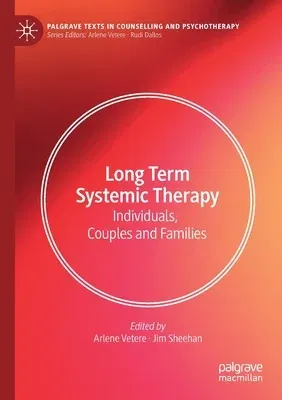Long Term Systemic Therapy: Individuals, Couples and Families (2020)Paperback - 2020, 2 June 2020

Qty
1
Turbo
Ships in 2 - 3 days
Only 2 left
Free Delivery
Cash on Delivery
15 Days
Free Returns
Secure Checkout

Part of Series
Palgrave Texts in Counselling and Psychotherapy
Print Length
209 pages
Language
English
Publisher
Palgrave MacMillan
Date Published
2 Jun 2020
ISBN-10
3030445100
ISBN-13
9783030445102
Description
Product Details
Book Edition:
2020
Book Format:
Paperback
Country of Origin:
NL
Date Published:
2 June 2020
Dimensions:
21.01 x
14.81 x
1.35 cm
ISBN-10:
3030445100
ISBN-13:
9783030445102
Language:
English
Location:
Cham
Pages:
209
Publisher:
Weight:
308.44 gm